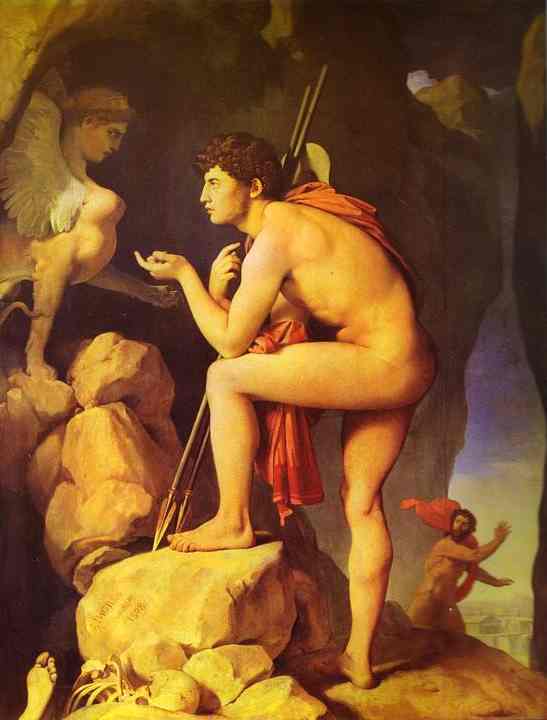Terms to define:
- tragedy
- comedy
- tragic hero (and what classifies
one as a tragic hero)
- hamartia
- catharsis
- tragic flaw
- satire
- Deus ex machina
- melodrama
- farce
- Oedipus (what's the name mean?)
- oracle
- strophe
- antistrophe
- sphinx
|
Questions from the text: These
questions are from the Perrine text, pages 1359-60.
In your groups, read and respond to
questions 1, 4, 5, 7, 8, 9, 11 & 15
|
Cast of Characters:
- Oedipus, King of Thebes, supposed
son of Polybus and Merope, King and Queen of Corinth
- Iokaste, wife of Oedipus, widow of
King Laios
- Kreon, brother of Iokaste, a prince
of Thebes
- Teiresias, a blind seer who serves
Apollo
- Priest
- Messenger, from Corinth
- Shepherd, former servant of Laios
- Second Messenger, from the palace
- Chorus of Theban Elders, narrates
and reflects on action
- Choragos
- Antigone & Ismene (daughters of
Oedipus and Iokaste; they do not speak)
- Suppliants, Guards, Servants
|
Dramatic Irony: Sophocles makes
great use of dramatic irony in Oedipus Rex. We, as the audience, know
quite a bit about Oedipus that he does not know. Watch for instances of
dramatic irony in this play and take note of them. You will want to refer
to these passages (hint, hint) later. |
